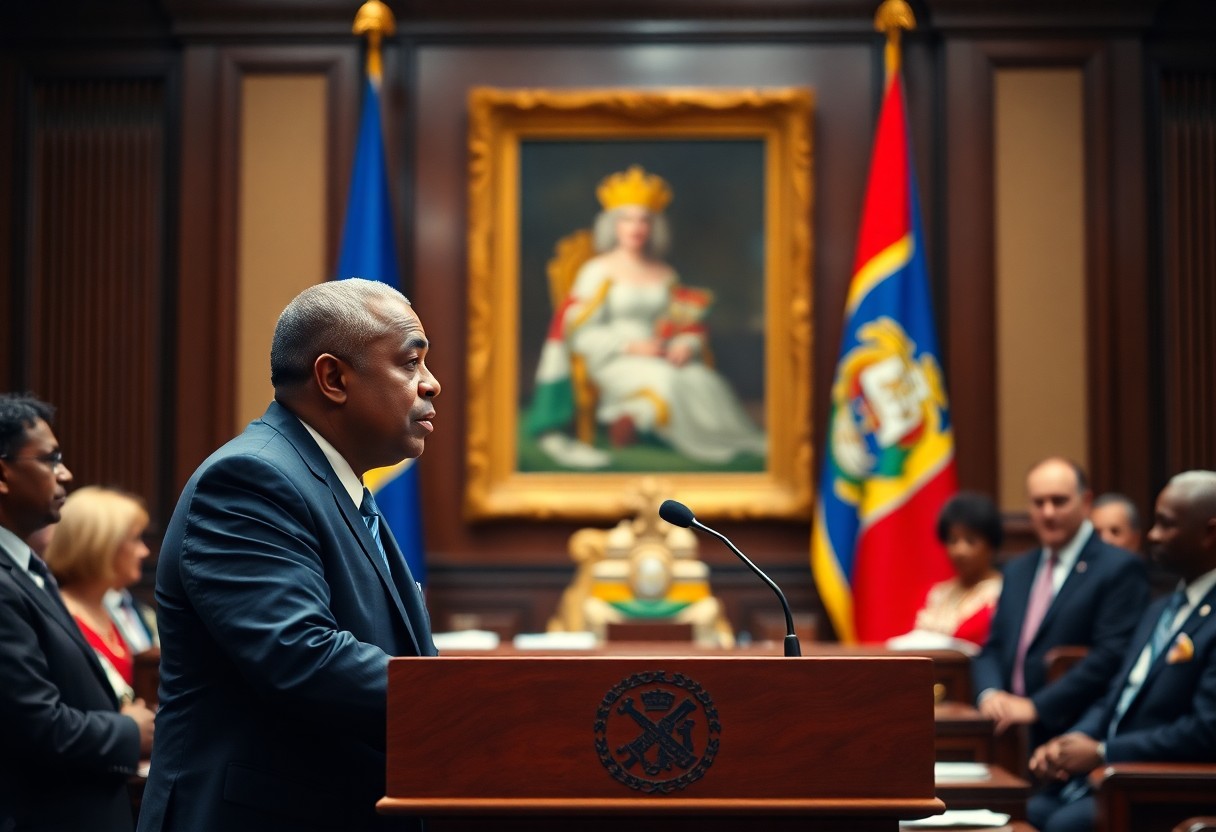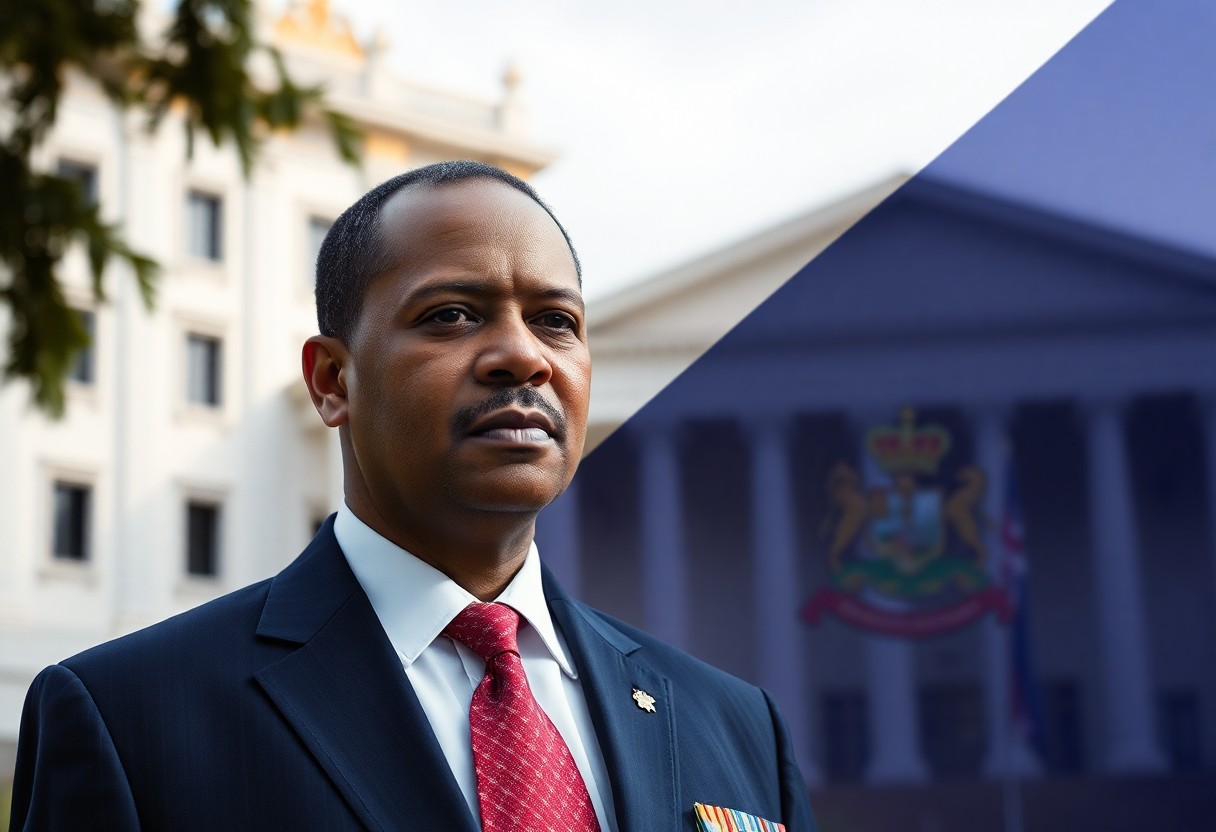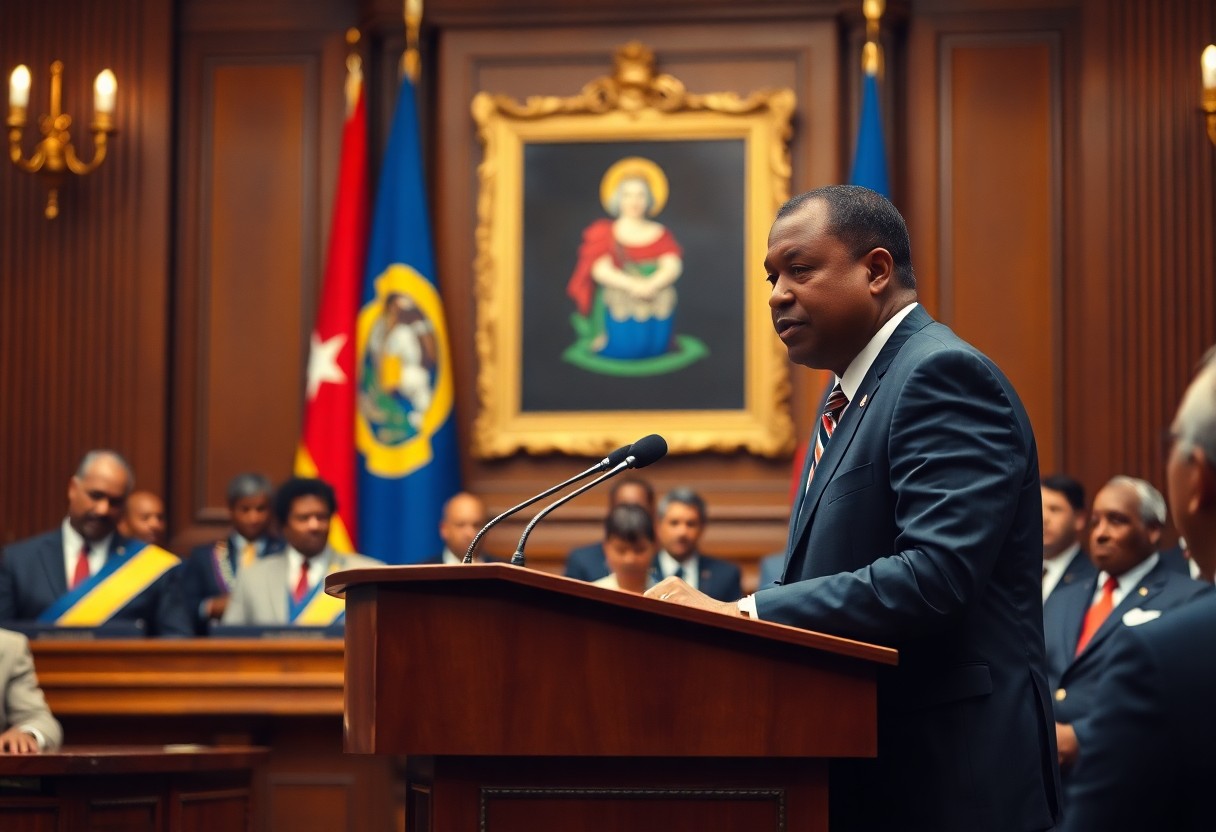Belize showcases a dynamic political landscape that captivates both locals and international observers alike. As a parliamentary democracy, Belize operates within a constitutional framework where the role of elected officials is vital for effective governance. Although Belize is a Commonwealth realm with King Charles III as its official head of state, the real political power is vested in the Prime Minister and the National Assembly. This distinctive governmental system blends traditional British parliamentary customs with modern democratic practices, creating a unique political environment that reflects Belize’s rich historical and cultural diversity.
Delving into Belize’s Constitutional Framework for Effective Governance
The constitutional framework of Belize establishes the foundation for a robust parliamentary democracy within the Commonwealth realm. This system is meticulously designed to harmonize the principles of democratic governance with historical institutional structures that stem from British colonial rule. The constitution, adopted in 1981 following Belize’s independence, outlines the essential political structure of the nation, detailing the roles, responsibilities, and interactions among the various branches of government. This framework guarantees that governance in Belize remains representative and accountable to its citizens, ensuring that their voices are heard and considered in the decision-making process.
Understanding the Monarch’s Role as the Ceremonial Head of State
In accordance with the constitutional design, the British monarch serves as the ceremonial head of state for Belize. While King Charles III is recognized as the nominal sovereign, he is represented locally by a Governor-General appointed based on ministerial advice. This representative’s role is predominantly symbolic, encompassing formal governmental ceremonies and a variety of constitutional duties that are essential to the governance of the nation. This arrangement not only highlights the historical connections between Belize and the British monarchy but also facilitates the flourishing of local governance, allowing Belizeans to manage their affairs effectively.
Prime Minister: The Central Political Leader of Belize
Within Belize’s political framework, the Prime Minister holds a position of executive power and political leadership. Typically, this role is assumed by the leader of the majority party in the House of Representatives. The Prime Minister is tasked with directing national policy, overseeing government operations, and representing Belize in international affairs. Their influence is pivotal in shaping the nation’s direction, political climate, and overall governance.
The constitutional provisions delineate the extensive responsibilities entrusted to the Prime Minister within Belize’s governance framework. This role encompasses critical decision-making across various governmental sectors, underscoring the necessity of effective leadership. The Prime Minister leads the Cabinet, proposes legislative initiatives, manages national economic strategies, and serves as the principal political spokesperson for the country. Their authority is significant, yet it is carefully balanced by parliamentary oversight and constitutional limitations, ensuring accountability and responsiveness to the citizenry.

Assessing the Prime Minister’s Influence on Belize’s Governance
The Prime Minister of Belize serves not only as the head of government but also possesses considerable political influence and authority. As the leader of the majority party within the parliament, they play an essential role in shaping national policy, representing Belize on the global stage, and managing the executive branch of government. Their position is crucial for promoting effective governance and facilitating national decision-making processes that affect all Belizeans.
Unpacking the Extensive Powers of the Prime Minister
To fully comprehend Belize’s political structure, it is important to recognize that the Prime Minister wields extensive constitutional powers that have a profound impact on the nation’s political landscape. Their authority includes appointing cabinet ministers, advocating for new legislation, directing governmental policy, and representing Belize across various international platforms. This considerable influence positions the Prime Minister as a central figure in Belize’s governance, enabling them to shape the nation’s future direction and priorities.
Navigating the Election Process for Selecting the Prime Minister
The process for selecting ministerial candidates typically unfolds through party-based electoral mechanisms. Potential Prime Ministers are frequently leaders of their respective political parties who successfully secure parliamentary seats during national elections. Their selection is contingent upon their party’s performance, reflecting the core democratic principles that are integral to Belize’s governmental framework.
The election process in Belize encapsulates complex political dynamics that are vital for understanding its governance. Candidates must navigate a variety of challenges, including local constituency elections, party nominations, and national voting trends. Generally, the leader of the party that secures the most parliamentary seats ascends to the position of Prime Minister, emphasizing the direct relationship between electoral success and governmental leadership.

Analyzing the Bicameral Parliamentary Structure of Belize
Belize operates within a parliamentary democratic structure, adopting a Westminster-style governance model that has its roots in British colonial traditions. The bicameral legislature consists of two chambers: the House of Representatives and the Senate, which together constitute the primary legislative body responsible for drafting and passing national laws that govern the country.
Exploring the Role of the House of Representatives
The House of Representatives plays a vital role in ensuring democratic representation, composed of 31 elected members chosen through constituency-based elections. These representatives are directly elected by the citizens, serving as the principal democratic voice in Belize’s political framework. Each member advocates for a specific geographic region and its local interests, ensuring that the diverse needs of the populace are adequately represented in the legislative process.
Examining the Responsibilities and Structure of the Senate
In contrast to the House of Representatives, the Senate functions as an appointed upper chamber with 12 nominated members. These senators are not elected directly; instead, they are appointed by the Governor-General based on recommendations from various political and social sectors. This system allows for a nuanced perspective on national legislation, enriching the legislative process with diverse insights and expertise.
This legislative body holds a critical advisory role in Belize’s governance. Senators are often chosen to represent a wide array of interests, including business, labor, religious organizations, and civil society. Their primary responsibility includes reviewing and potentially amending legislation passed by the House of Representatives, thereby ensuring a comprehensive and balanced approach to lawmaking that takes into account multiple societal perspectives and interests.

Correcting Common Misconceptions about Belize’s Political System
Despite popular beliefs, Belize’s governmental structure is far more intricate than many might perceive. Widespread misunderstandings about political leadership contribute to confusion regarding the true nature of governance in the country. The reality of Belize’s political system often diverges significantly from surface-level perceptions, revealing nuanced layers of power and governance that merit deeper examination.
Clarifying the Difference Between “President” and “Prime Minister” in Belize
Given that many countries operate under presidential systems, there is a tendency to mistakenly assume that Belize follows a similar model. However, it is crucial to recognize that Belize operates under a parliamentary system, where the Prime Minister functions as the head of government, not a president. This distinction is vital for grasping the political leadership structure, as the Prime Minister is elected from the majority party in parliament, contrasting with a directly elected presidential figure, which allows for a different governance approach.
Understanding the Complex Political System of Belize
Exploring further into Belize’s political framework reveals complex interactions among constitutional monarchy, parliamentary democracy, and local governance. You may not realize that while the British monarch remains the official head of state, the daily governance is managed by elected officials through a representative democratic system, emphasizing the importance of local accountability in addressing the needs and concerns of Belizeans.
Common misconceptions surrounding Belize’s political structure often overlook the intricate balance of power between local institutions. You might be surprised to discover that the system comprises multiple levels of governance, including a national parliament, local councils, and the influence of the British monarchy through a Governor-General. Understanding this nuanced political landscape necessitates a deeper comprehension that goes beyond simplistic categorizations of governmental styles.
Exploring the Dynamics of Governance and Political Relationships in Belize
It’s essential to recognize that Belize operates as a parliamentary democracy within a constitutional monarchy, where the British monarch serves as the ceremonial head of state. Your understanding of the political landscape is significantly shaped by the Prime Minister’s substantial power, who leads the government and represents the majority party in the National Assembly. While the political system appears stable, potential tensions between political parties can create intricate governance challenges, affecting national decision-making processes. Awareness of these dynamics will enhance your appreciation of the delicate balance of power within this Central American nation, where historical influences and democratic processes continue to shape the political trajectory.
Tracing the Historical Development of Belize’s Political Landscape
The political landscape of Belize has emerged from a rich and complex colonial history, where British colonial rule profoundly influenced its governance structure. You can explore the nation’s political evolution, which transitioned from being a British Honduras colony to an independent state in 1981. This transformative period marks a critical juncture in your understanding of Belize’s governmental framework. Your exploration will reveal how British parliamentary traditions have fundamentally shaped Belize’s current political system, creating a unique blend of Westminster-style democracy and local governance that continues to define the country’s political identity today.
Essential Insights on Belize’s Political Structure and Governance
In summary, Belize functions as a parliamentary democracy within the Commonwealth realm, where the Prime Minister holds primary executive power. While Queen Elizabeth II historically served as the head of state, the current monarch, King Charles III, upholds a largely ceremonial role. Understanding Belize’s governance revolves around the National Assembly, comprised of elected representatives who draft and enact legislation. The Prime Minister, typically the leader of the majority party, effectively governs the country, making critical decisions that influence Belize’s political landscape. This system successfully balances democratic representation with the principles of constitutional monarchy, fostering a unique governance model that reflects the country’s historical and cultural context.
Addressing Common Questions about Belize’s Political System
What is the Core Functionality of Belize’s Political System?
Belize operates as a parliamentary democracy within the Commonwealth realm. The Prime Minister serves as the head of government, steering the executive branch. The Parliament consists of two chambers: the House of Representatives (comprising elected members) and the Senate (comprising appointed members). While Queen Elizabeth II historically served as the head of state, King Charles III currently fulfills this ceremonial role, represented locally by a Governor-General, ensuring a connection to Belize’s historical roots.
Who is the Current Leader of Belize, and How Are National Leaders Chosen?
Prime Minister Johnny Briceño leads Belize, heading the People’s United Party (PUP). National leaders are selected through democratic elections, where citizens cast votes for representatives in the House of Representatives. The political party securing the majority of seats typically forms the government, and its leader becomes the Prime Minister. Elections take place every five years, fostering consistent democratic engagement and participation among the citizenry.
What Legislative Powers Does the Belizean Parliament Hold?
The Belizean Parliament possesses significant legislative authority. The House of Representatives is responsible for drafting, debating, and passing laws that influence national policy. Members propose legislation, approve national budgets, and exercise oversight over government operations. The Senate reviews proposed laws and can recommend modifications, playing a crucial role in the legislative process. Both chambers are essential in upholding democratic principles and representing the interests of Belizean citizens.
The Article Who Really Runs Belize? The Prime Minister, Parliament, and Monarchy Explained appeared first on Belize Travel Guide
The Article Who Runs Belize? Insights on the Prime Minister and Government Was Found On https://limitsofstrategy.com


Your exploration of Belize’s unique political landscape is truly enlightening! I find it fascinating how the blending of traditional British parliamentary customs with Belize’s own historical and cultural nuances shapes the country’s governance. It raises questions about how such a system impacts day-to-day life for citizens.